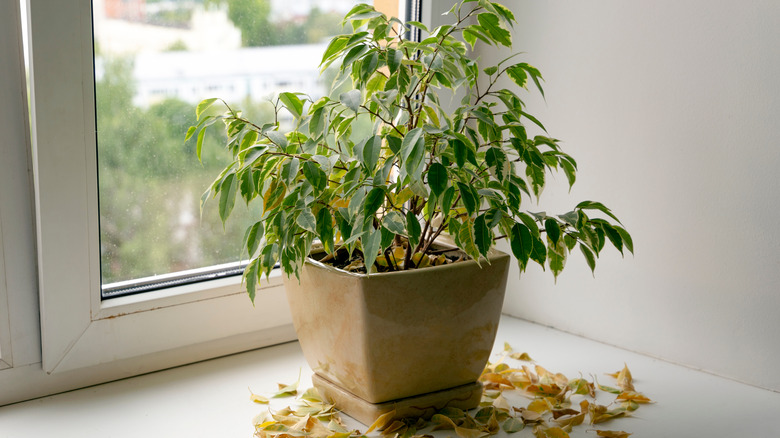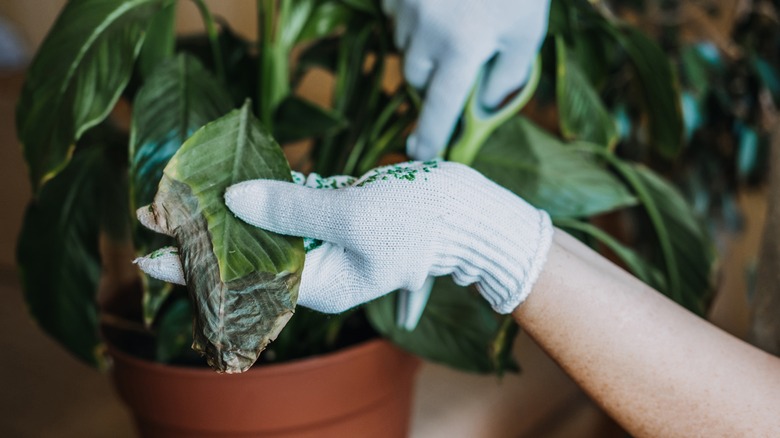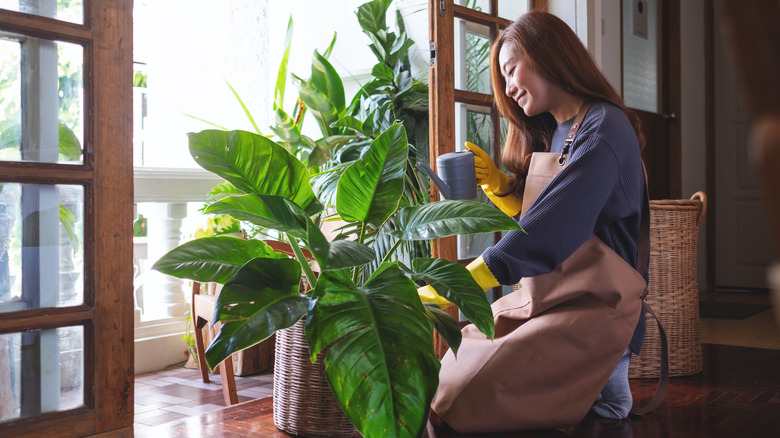Can Your House Plants Really Get Stressed Out?
Plants are fascinating living beings that require proper care and attention to thrive. Of course, we all know they need sunlight, water, and nutrients to grow, but did you know they can also experience stress? That's right—just like humans, your trendy Monstera deliciosa can suffer from stress, and its effects harm their health.
Not only that, but stressed-out plants actually emit sounds! While these cries may go unheard by human ears, according to Professor Lilach Hadany of Tel Aviv University, they still have much to tell us. "One of our subjects was [a] tomato plant. When a tomato plant is feeling well, it emits very few sounds. But when it is stressed ... it emits plenty of sounds. And we can tell the type of stress and species of the plant from these sounds," Hadany explains.
But how can you tell when your favorite fern is feeling blue? While some signs are easy to identify, others may be harder to pinpoint. For instance, you may notice that they are growing slower than they used to or that their leaves are a different color than they should be. Let's look at what stress means for plants and how you can help them overcome it.
What causes plant stress?
Plant stress covers any condition affecting growth and development. This can include a variety of factors, such as changes in temperature, humidity, light, water, or soil quality. When exposed to stressors, your beloved houseplants may experience physical or physiological changes that can negatively impact their health. They even undergo hormonal changes. So understanding what causes these and how to identify issues is essential for keeping your flowers and greenery healthy.
Temperature and humidity are the most common stressors affecting growth and development. Light is another crucial factor, as plants must produce energy through photosynthesis. Insufficient light can lead to stunted growth and pale leaves. Water and soil quality are also crucial elements — overwatering or underwatering can cause stress and poor soil quality, leading to nutrient deficiencies and root damage.
In addition to environmental factors, plants can experience stress from pests and diseases. Insects and other pests can damage their tissues and transmit diseases, while fungal infections can weaken root structures and reduce their ability to absorb water and nutrients. To identify pest or disease stress, look for signs such as holes in leaves, discoloration, wilting, or stunted growth. Any unusual growth or discoloration could indicate a fungal or bacterial infection, which should be treated promptly to prevent further damage.
How to avoid plant stress
The good news is that there are many ways to help your succulents, pothos, or fiddle leaf fig trees overcome stress and thrive. According to Gold Bio, providing appropriate lighting and adequate water, maintaining proper humidity levels, avoiding temperature extremes, and limiting overcrowding will help keep your plants healthy.
Different species require different amounts of light, so it's essential to research each one's needs. Most prefer bright, indirect sunlight. Be sure to rotate your planters regularly to ensure all sides receive adequate light. Since overwatering and underwatering can cause stress, it's essential to check the soil regularly to determine when they need water. As a general rule, most houseplants prefer to dry out slightly between watering. However, many are native to tropical environments and require higher humidity levels — increase this by placing a tray of water near your plants or using a humidifier.
Most plants thrive in temperatures between 60 and 75 degrees Fahrenheit. Avoid placing planters near drafts or in areas that experience extreme temperature fluctuations. Overcrowding can cause stress for plants as they compete for resources such as water and nutrients. Be sure to give each one adequate space to grow. That said, it's important to note that these are general tips for keeping plants happy and may not apply to every species.


